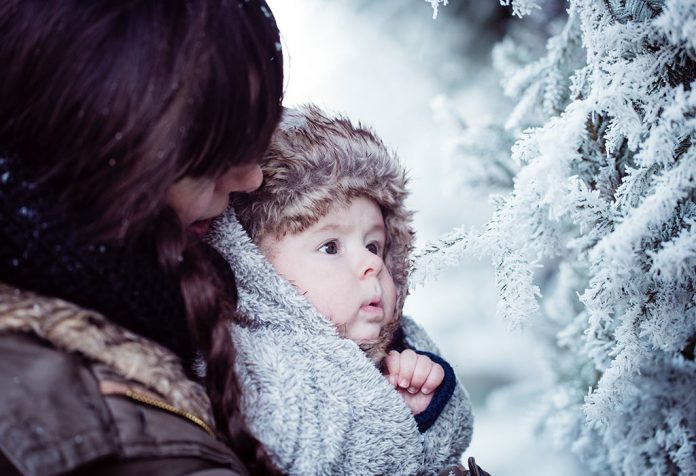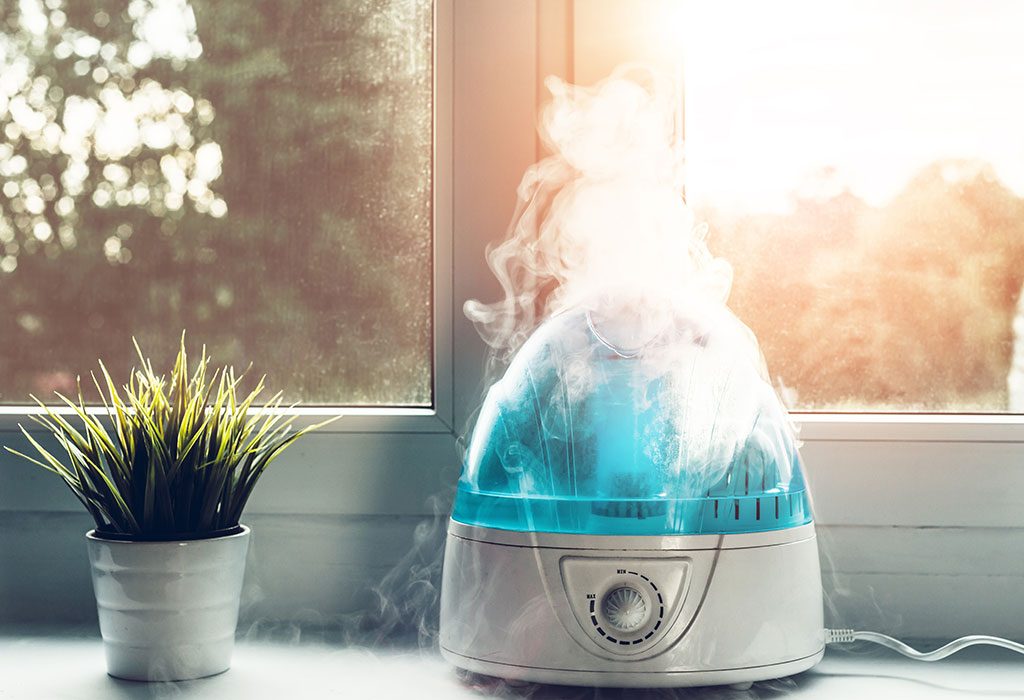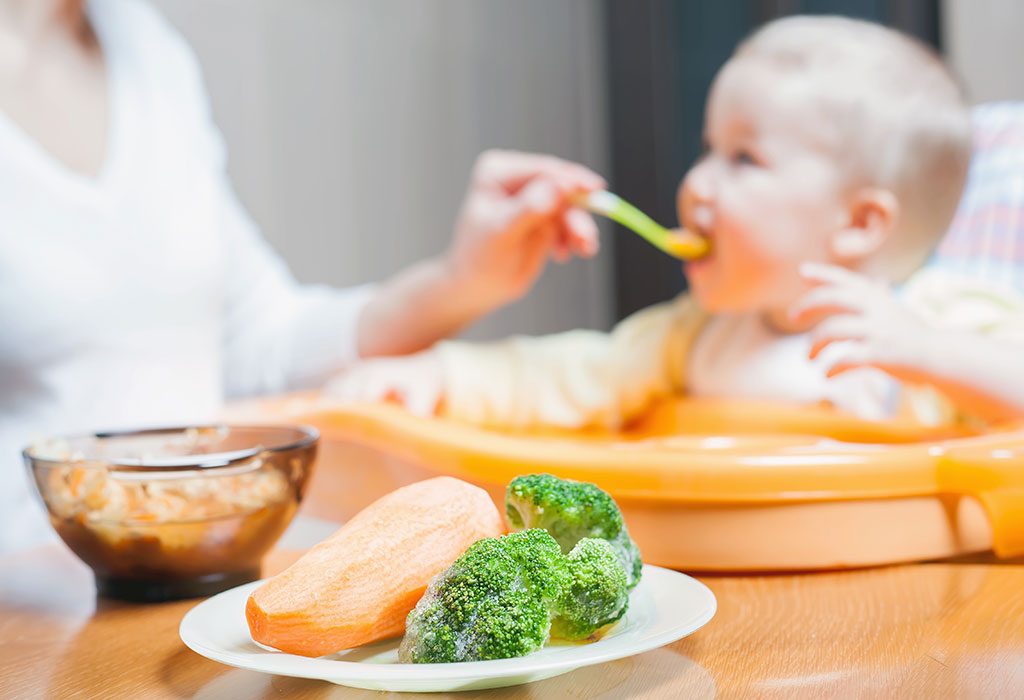 We all love the winter season, but when it gets extremely cold outside, life gets tough for us. During winters, all you would want to do is stay cooped up in the house and if you are a new mom, you would want to protect your baby from the harsh winds blowing outside. As your baby’s immune system will be still developing, he will be susceptible to colds and infections and that is bound to leave you worried. But by taking preventive measures, you can keep your little one warm and safe. Read on to learn about newborn baby care during the winter season.
We all love the winter season, but when it gets extremely cold outside, life gets tough for us. During winters, all you would want to do is stay cooped up in the house and if you are a new mom, you would want to protect your baby from the harsh winds blowing outside. As your baby’s immune system will be still developing, he will be susceptible to colds and infections and that is bound to leave you worried. But by taking preventive measures, you can keep your little one warm and safe. Read on to learn about newborn baby care during the winter season.
Why Is It Important to Take Care of a Baby During Winters?
Newborn babies require continued care and support until they reach a point where they can sustain themselves on their own in a better way. But they need extra care during the winter season as a drop in temperature triggers various processes within the body to keep itself safe and the vital organs functioning well. Most of the energy is then used to maintain the body temperature appropriately, diverting it from other areas. This is where the immunity of the body takes a hit as well. During winters, the microbes and viruses thrive and find hosts to infect. Combined with decreased immunity, babies become an easy target for diseases and their chances of falling ill increase.
Problems Caused By Virus in Winters
Winter is also the season of the flu. It’s that time of the year when the virus spread easily and affects anyone and everyone in a matter of time. This gives rise to the typical winter diseases such as:
- Influenza and bronchiolitis
- Croup as well as rhinovirus
- A variety of respiratory sensitive virus, which affect the respiratory tract and lead to cough and severe breathing problems
Symptoms of Winter Infections in Babies
Most of the infections that occur in winter have strong symptoms, which make them easier to be spotted. If your baby has an infection, you will notice the following symptoms in him –
- He may cough severely and might even vomit
- Your baby may have trouble breathing; he may gasp or take small breaths
- He may make wheezing sounds while sleeping or even after coughing
- He may have pain in the chest due to inflamed lungs as a result of a respiratory infection
- He may have a runny nose, fever, cough, with a headache
- He may feel fatigued
Useful Tips to Take Care of Your Infant During Winters
Here’s how you can take care of a baby’s skin and overall health during the winter season and ensure he stays healthy throughout the season.
1. Use a Humidifier
If you live in colder regions, using a humidifier in your baby’s room becomes necessary. In winters, the temperature will plummet, so it is suggested that you use heating systems or portable heaters in your baby’s room. If you use a heating apparatus, it could rob the room of water vapor, making the air dry as well as your child’s skin. Hence, install a humidifier in the room so that the moisture levels are maintained optimally.
2. Use a Moisturizer
Your little one’s skin will be extremely sensitive and the harsh atmosphere of the winter can make it dry. If you want to keep your little one’s skin soft and supple, use a good moisturizer on his skin. Opt for skin creams or moisturizers that are made for the baby’s skin. You can use a cream or lotion that is rich in milk cream and butter, as it will help maintain the glow and texture of your baby’s skin.
3. Don’t Use a Lot of Products
As a new parent, you will want to buy every new and promising babycare product available in stores, but resist the temptation because using a lot of products on your baby’s skin won’t do him any good. Applying lotions and creams is fine, but if you bathe him often and use several products on him, it will only make his skin dry. Also, avoid using soaps and shampoo daily or often. These products will rob the moisture of his skin and make it dry.
4. Massage Your Baby Well
For the proper growth and development of your child, it is important that you massage him daily. The very act of massaging stimulates the blood flow within the body and increases the sense of well-being, which indirectly boosts the immunity of the baby. Use a good massage oil for massaging and massage him gently. And while doing so, make sure that the room in which you massage him is warm, especially during the winter season.
5. Don’t Use Heavy Blankets
Laying a nice heavy blanket on your baby to keep him warm may seem the best way to comfort your little one in winter, but it isn’t the safest way to keep him warm. If you use heavy blankets to keep your little one warm, he won’t be able to move his arms freely. And while trying to do so, he may pull it above his face, which will increase the risk of SIDS. Hence, it is suggested that you use a light blanket and keep the room temperature optimal.
6. Dress Your Baby Comfortably
Keeping your child constantly wrapped up in thick sweaters, gloves, socks, and a cap could restrict him from moving easily and make him irritable. So make him wear clothes depending on the room temperature and opt for clothes that fully cover his body but are not constricting. You can also make him wear gloves and socks – they will keep your little one warm and make him sleep peacefully through the night.
7. Check the Temperature of Your Baby’s Room
Keeping your home and your baby’s room comfortable and warm will keep your baby safe and protected from the harsh winter winds. Keep the windows of your home shut and lock the doors well. That being said, make sure that your baby’s room and living room stay ventilated. Use a heater, if required, so that your baby is comfortable by himself.
8. Stick to the Vaccination Schedule
During winters, your baby will be more susceptible to infections. His immune strength will be low too. But that isn’t a reason to skip any vaccine for the fear that it might make your baby ill. It is highly important to get your child vaccinated at the right time. Getting your child vaccinated will keep him healthy in the future. In case you do end up skipping it by chance, get the next date confirmed from your doctor and go for it without fail.
Breast milk contains antibodies and nutrients that help strengthen a baby’s immunity and protect him from the usual diseases. So even if you have started him on solids, continue breastfeeding him. Breast milk will provide him with all the nutrients he needs to stay healthy. And while breastfeeding, the warmth of your body will also be relaxing for him.
10. Maintain Your Own Hygiene
You are going to be the first point of contact for your child. Hence, it is absolutely necessary for you to stay clean and healthy. Wash your hands and disinfect them with a sanitizer every time you attend to your child. Germs can find the smallest way of reaching your baby, so make sure you stop all paths right away. If you have guests or visitors, politely ask them to wash their hands or use a sanitizer before they attend to the baby.
Unless it is absolutely freezing outdoors, it is fine to step out of the house once in a while to get some fresh air. But do make sure that your baby is protected from head to toe if you take him out. Any exposure of the skin to the cold wind could make him uncomfortable quickly. Ensure that your baby’s toes are a bit on the cooler side and the tummy is on the warmer side. This is the ideal sign that your baby’s body is at the right temperature.
12. Include Soup in Your Baby’s Diet
If your baby has reached the age where he can start taking semi-solids, winter would be a great time to introduce soups in his diet. A healthy soup in the cold weather will keep him warm. You can make soup for your baby and add mashed (or pureed) chicken pieces or vegetables to it. Also, include crushed garlic in the soup, it will keep your baby warm during winters and protect him from various winter ailments.
What If Your Newborn Falls Sick in Winter?
At times, even taking the best precautions cannot help prevent illness. If your baby falls sick during the winter season, you must take him to a pediatrician and get him checked. If it is the common cold or flu, you can give him homemade saline solution or nasal drops to help relieve a blocked nose. It will help him breathe properly, which will make him feel better. However, you should always give saline solutions or nasal drops after checking with a doctor.
Make sure your child stays hydrated. Keep breastfeeding him or giving him water separately. If he can drink soups or so, do alternate them appropriately to keep his taste interested and body fluids at a proper level. Cuddling your baby lovingly and spending time with him is just as necessary along with taking other precautionary measures. Many times, the presence of safety and comfort can help the body combat the infection by itself. But if the signs and symptoms of the infection tend to start worsening, do contact your baby’s doctor right away.
If it’s your baby’s first winter, you are bound to get worried, but by taking the preventive measures beforehand, you can take care of him and keep him safe. Maintain proper hygiene in your house and keep your house warm. But if you notice that your little one is not feeling well, consult a doctor.






 LONDON — Scotland is poised to become the first country to end “period poverty” by providing free sanitary products to women of all ages in the countryFree menstrual products
LONDON — Scotland is poised to become the first country to end “period poverty” by providing free sanitary products to women of all ages in the countryFree menstrual products


